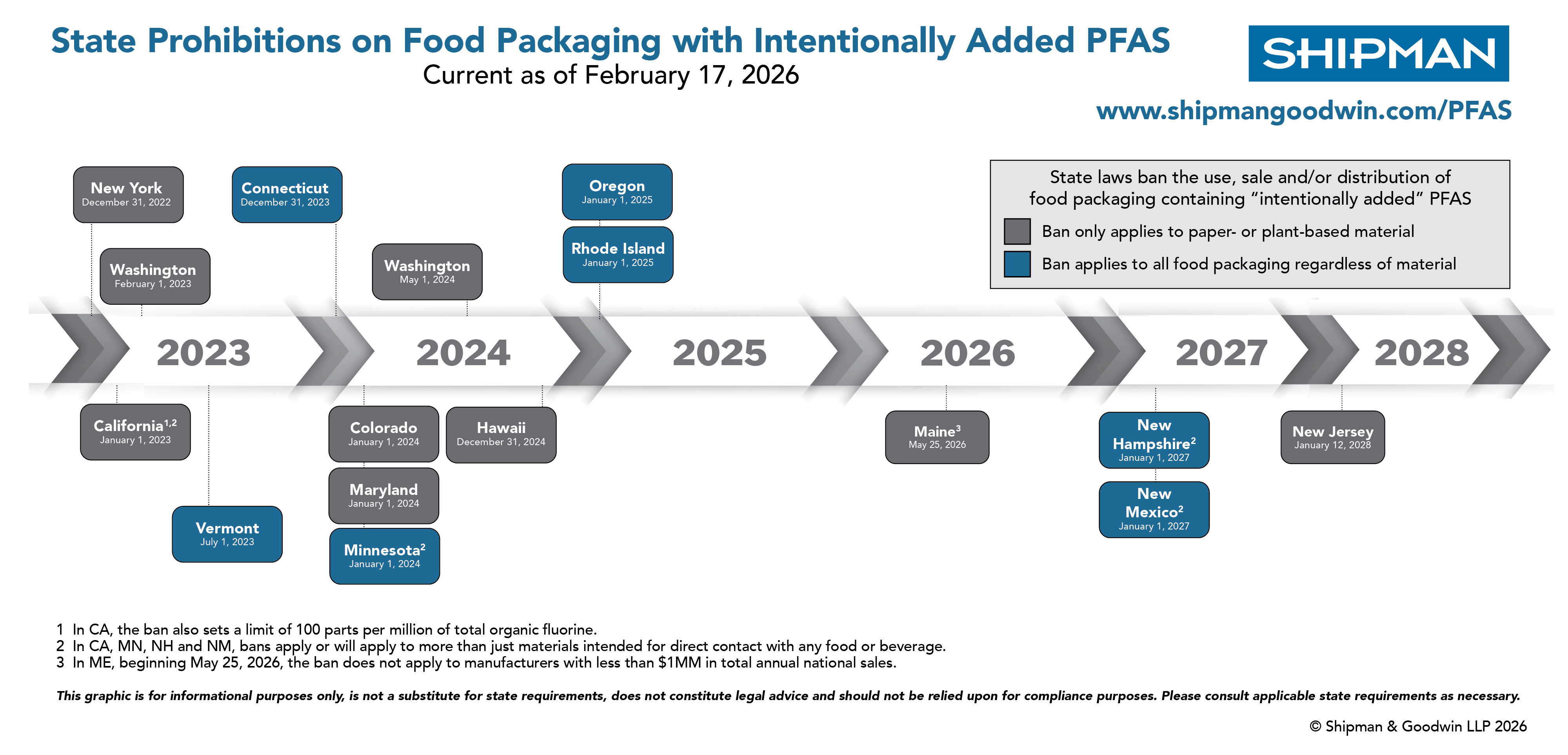Connecticut’s Ban on “Intentionally Added” PFAS in Food Packaging Begins on New Year’s Eve
Alerts
November 1, 2023
Beginning December 31, 2023, food packaging used in Connecticut cannot include intentionally added per- and polyfluoroalkyl substances (PFAS). All food producers and packaging manufacturers with products sold or distributed in Connecticut will be impacted by this far-reaching ban, which:
- Pertains to any package or packaging component applied to or in direct contact with any food or beverage, such as wraps, to-go containers, food boats and cups;
- Prohibits PFAS that are “intentionally introduced” during manufacturing or distribution where their continued presence is desired for a specific characteristic, appearance or quality (e.g., grease resistance); and
- Also prohibits PFAS alternatives or replacements if such chemicals create an equal or greater hazard than the PFAS being replaced.
- Note, however, PFAS present in food packaging or packaging components due to recycled materials are not restricted.
As detailed in a prior post, Connecticut is one of several states acting independently to ban intentionally added PFAS in food packaging, with several other states’ laws already in (or soon to be in) effect. Looking ahead, the effective date of Rhode Island’s ban was pushed to July 1, 2024 while Oregon’s newly passed ban takes effect January 1, 2025. Additionally, Maine’s requirement that manufacturers notify the state of products with intentionally added PFAS has been modified as follows: (i) only the PFAS content of the product—not its packaging—must be reported; and (ii) the effective date has been pushed back to January 1, 2025.
The patchwork approach by states makes it very important for manufacturers and distributors with multi-state footprints to be aware of, and understand, each ban and their differences to ensure they comply with all applicable requirements.

PFAS are a hot topic in Connecticut and nationally. Our environmental attorneys are advising clients in various sectors on the evolving legal, regulatory and technical impacts of PFAS on their operations and transactions. If you have questions about PFAS, please reach out to any Shipman environmental lawyer or your primary Shipman contact for more information. For more background information on PFAS, please see Shipman’s dedicated PFAS Resource Page.
Disclaimer: The alert and graphic are for informational purposes only and do not constitute legal advice. They are not substitutes for state laws, regulations and guidance and should not be relied upon for compliance purposes. Please consult applicable state laws, regulations and guidance as necessary.
